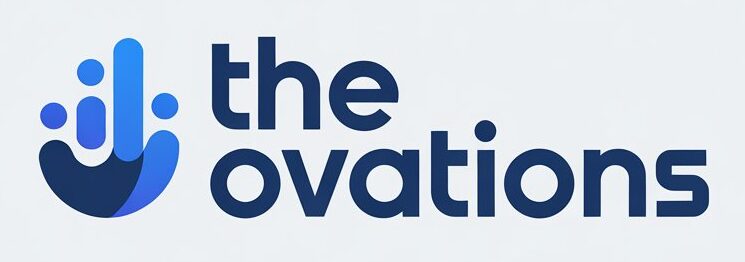In the digital era, reading has evolved far beyond physical pages. With eBooks now easily accessible on smartphones, tablets, and eReaders, millions of readers around the world have turned to the internet to find digital copies of their favorite titles.
Among the many platforms that once dominated the online book-sharing scene, OceanofPDF became one of the most well-known — praised by some readers for its convenience but criticized by authors and publishers for copyright violations.
This article explores what OceanofPDF was, why it gained immense popularity, the reasons behind its shutdown, and the legal, safe alternatives available for accessing free or affordable eBooks today.
What Was OceanofPDF?
OceanofPDF was a website that offered free downloadable eBooks in multiple formats, including PDF, EPUB, and MOBI. It featured thousands of titles ranging from:
-
Popular fiction and non-fiction
-
Academic and self-help books
-
Classic literature and new releases
At its peak, the site attracted millions of visitors each month who sought to download bestselling books for free.
The site’s slogan often emphasized accessibility and convenience, promoting itself as a platform that made reading “available for everyone.” However, beneath its user-friendly surface, OceanofPDF operated in a legal gray area — distributing copyrighted material without proper authorization from publishers or authors.
Why OceanofPDF Became So Popular
There were several reasons why OceanofPDF gained massive traction among global readers:
1. Free Access to Premium Content
OceanofPDF provided full digital versions of books that normally cost $10–$30 each on platforms like Amazon Kindle or Apple Books — for free.
2. Easy-to-Use Interface
The site’s layout was simple and direct: users could search by title, author, or genre and instantly find a download link.
3. Multiple File Formats
It offered compatibility with Kindle, iBooks, Kobo, and other e-readers, giving users flexibility in how they read.
4. No Registration Required
Unlike subscription-based services, OceanofPDF allowed users to download books without creating an account or logging in.
5. Broad Global Reach
Because many countries have limited access to affordable books, OceanofPDF became a go-to source for students and readers in regions with fewer publishing resources.
While these advantages helped the site gain a large following, they also attracted legal scrutiny.
The Legal Controversy: Why OceanofPDF Was Shut Down
1. Copyright Infringement
The main issue surrounding OceanofPDF was unauthorized distribution of copyrighted content. Publishers discovered that the site offered recent bestsellers — including those still under copyright protection — for free download, bypassing sales channels.
2. Publisher Complaints and Takedowns
Major publishing houses, including Penguin Random House and HarperCollins, reportedly issued DMCA takedown notices against OceanofPDF. These notices demanded the removal of copyrighted works from the platform.
3. Author Outrage
Several authors publicly expressed frustration over their books being shared for free without permission, arguing that sites like OceanofPDF undermined the livelihoods of writers who rely on royalties.
4. Domain Suspension
In mid-2018, the OceanofPDF domain was taken offline, with reports suggesting that it was seized or voluntarily shut down following legal pressure.
Shortly after, mirror sites and clones appeared under slightly different names (such as oceanofpdf.net or oceanofebook.com), but many of these versions were short-lived, replaced, or filled with malware.
Is OceanofPDF Still Online?
As of today, the original OceanofPDF website is no longer active.
Some mirrors may still appear temporarily, but most are unofficial clones that can pose significant risks, such as:
-
Malware or virus infections
-
Fake download buttons leading to phishing pages
-
Hidden subscription traps or pop-up ads
-
Scams requesting credit card details
If you find a website claiming to be “the new OceanofPDF,” proceed with extreme caution. These mirrors are often unsafe and may compromise your personal data or device security.
Was OceanofPDF Legal?
No.
Despite offering free access to books, OceanofPDF did not have licensing agreements with publishers or authors. Under international copyright law, sharing or downloading copyrighted materials without authorization is illegal in most jurisdictions.
Legal Implications for Users
While casual readers were rarely prosecuted, downloading from unauthorized sources can still:
-
Violate copyright regulations
-
Expose users to malware or scams
-
Lead to blocked or blacklisted IP addresses
In short, using such sites — even unintentionally — falls outside legal and ethical boundaries.
The Ethical Side: The Impact on Authors and Publishers
Many readers who used OceanofPDF believed they were simply accessing free reading material. However, every unauthorized download represents lost income for:
-
Authors who depend on book sales
-
Editors, illustrators, and translators who contribute to publishing
-
Independent publishers that rely on digital distribution revenue
In the long run, widespread book piracy discourages creativity, reduces author motivation, and undermines the publishing industry’s ability to invest in new writers.
Ethical reading means supporting authors by purchasing, borrowing, or legally downloading their works.
Safe and Legal Alternatives to OceanofPDF
Fortunately, there are many legitimate platforms where readers can find free or affordable eBooks without legal or security risks.
1. Project Gutenberg
One of the oldest and most respected digital libraries, Project Gutenberg offers over 70,000 free eBooks, primarily consisting of works in the public domain (such as classics by Jane Austen, Charles Dickens, and Mark Twain).
2. Open Library
An initiative by the Internet Archive, Open Library allows users to borrow millions of eBooks for free through its digital lending program.
3. Google Books
Google Books offers millions of preview and full-view titles. Many older books are available in full for free, and others can be purchased directly.
4. ManyBooks.net
A user-friendly platform offering thousands of free and discounted eBooks from independent authors and public-domain libraries.
5. Smashwords
A distribution platform that provides both free and low-cost eBooks, often from self-published authors.
6. BookBub
BookBub curates limited-time free or discounted eBooks from major publishers and indie authors.
7. Libby / OverDrive
Libby (by OverDrive) connects to your local library, allowing you to borrow eBooks legally using your library card.
The Dangers of OceanofPDF Clones
After OceanofPDF’s shutdown, many imitation websites appeared. Users should be aware of potential risks:
-
Fake download links: Many mirrors redirect users to malicious websites or install unwanted software.
-
Data theft: Some sites collect personal information under the guise of “free registration.”
-
Ransomware and trojans: Pirated eBook files can contain embedded malware or scripts.
If you value privacy and security, avoid mirror sites and instead use verified eBook platforms.
How to Access Books for Free Legally
Even without pirated sites, readers can still enjoy a vast digital library legally:
-
Use local library apps (like Libby or Hoopla).
-
Sign up for free trials on Kindle Unlimited or Scribd.
-
Follow authors’ newsletters — many offer free novellas or sample chapters.
-
Browse Creative Commons archives for books released under open licenses.
-
Participate in reading communities (like Goodreads) that often share limited-time free downloads.
These options support the reading community while ensuring that authors are fairly compensated.
The Legacy of OceanofPDF
Although OceanofPDF is gone, its rise and fall reflect a broader challenge in the digital publishing industry — the tension between accessibility and copyright.
On one hand, readers seek free, easy access to knowledge and entertainment. On the other, creators deserve protection and recognition for their work.
The future of eBooks depends on balancing these priorities — creating affordable, accessible platforms while maintaining fair compensation for authors and publishers.
Conclusion
OceanofPDF was once a popular source for free eBooks, but its shutdown underscores a vital truth: not everything that’s free online is legal or safe. While the website gave millions of readers access to books, it did so at the cost of authors’ rights and copyright laws.
Today, readers have better, safer alternatives. From Project Gutenberg to Libby and Google Books, legal options make it possible to read widely without crossing ethical or legal boundaries.
In the end, supporting legitimate book platforms ensures that great authors can continue to create — and that readers can enjoy literature with peace of mind.






